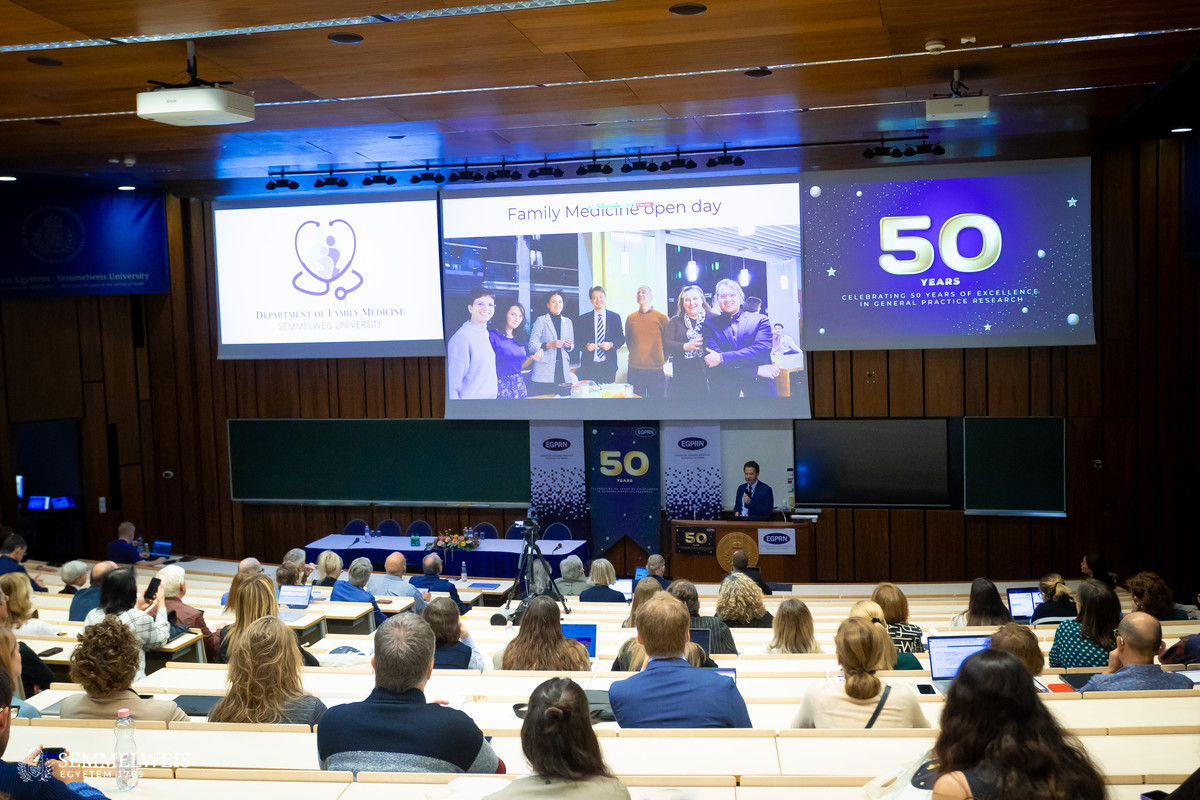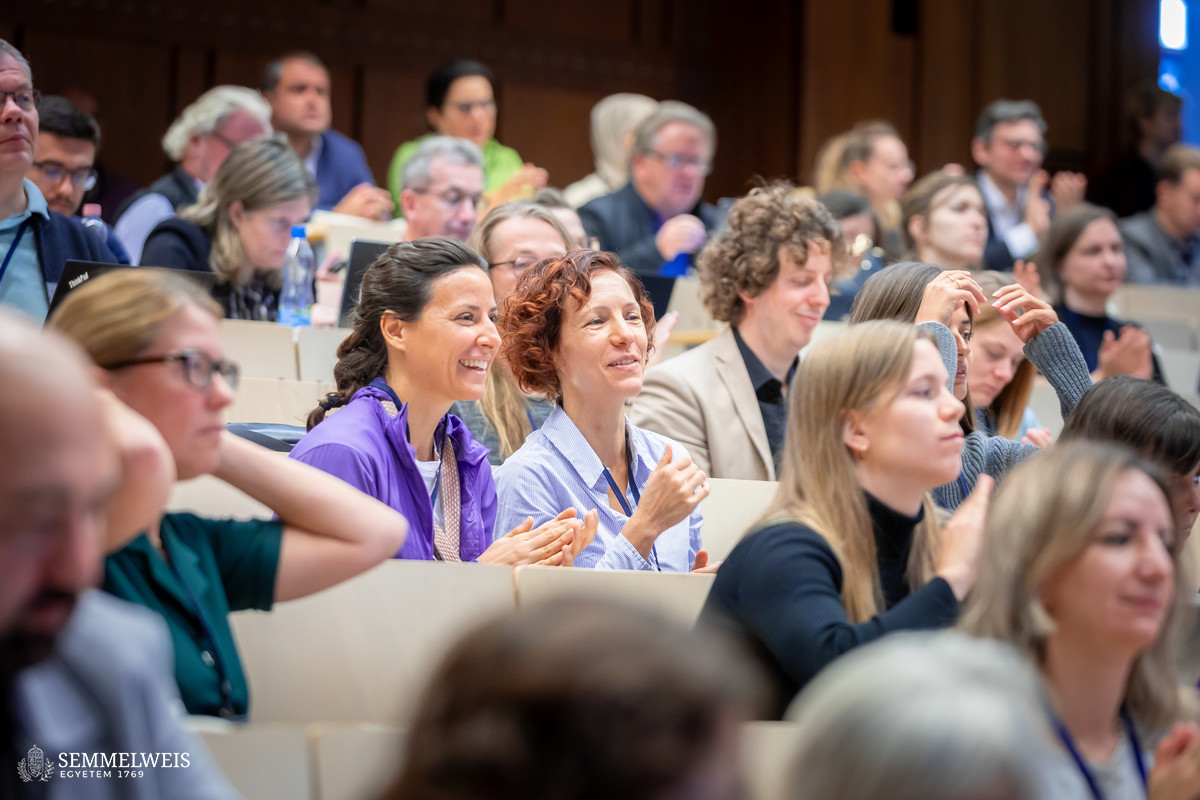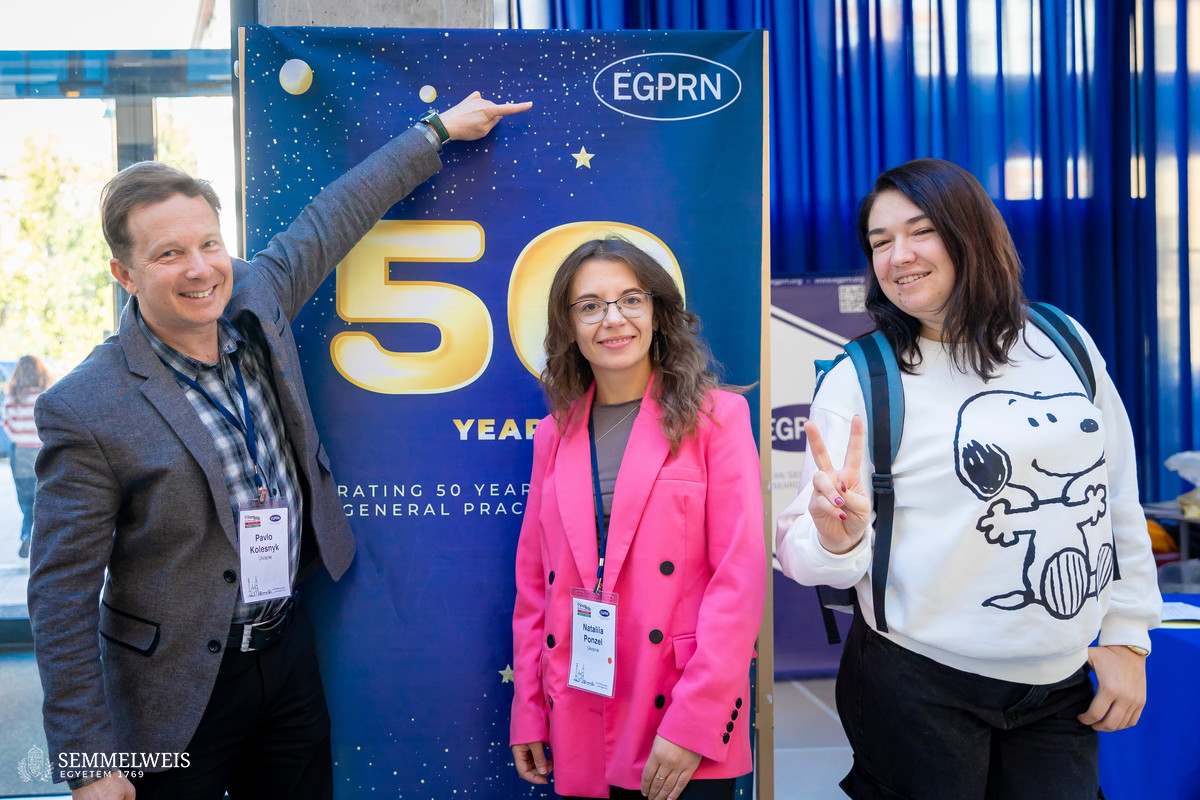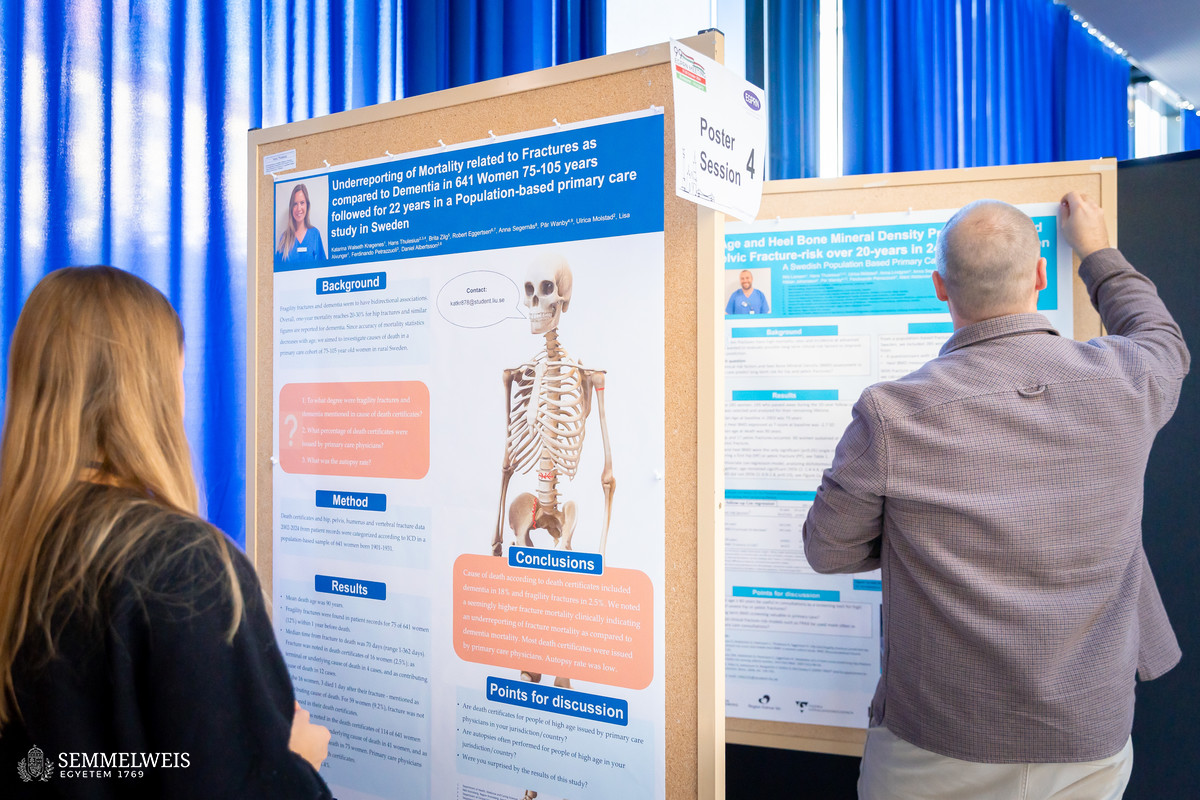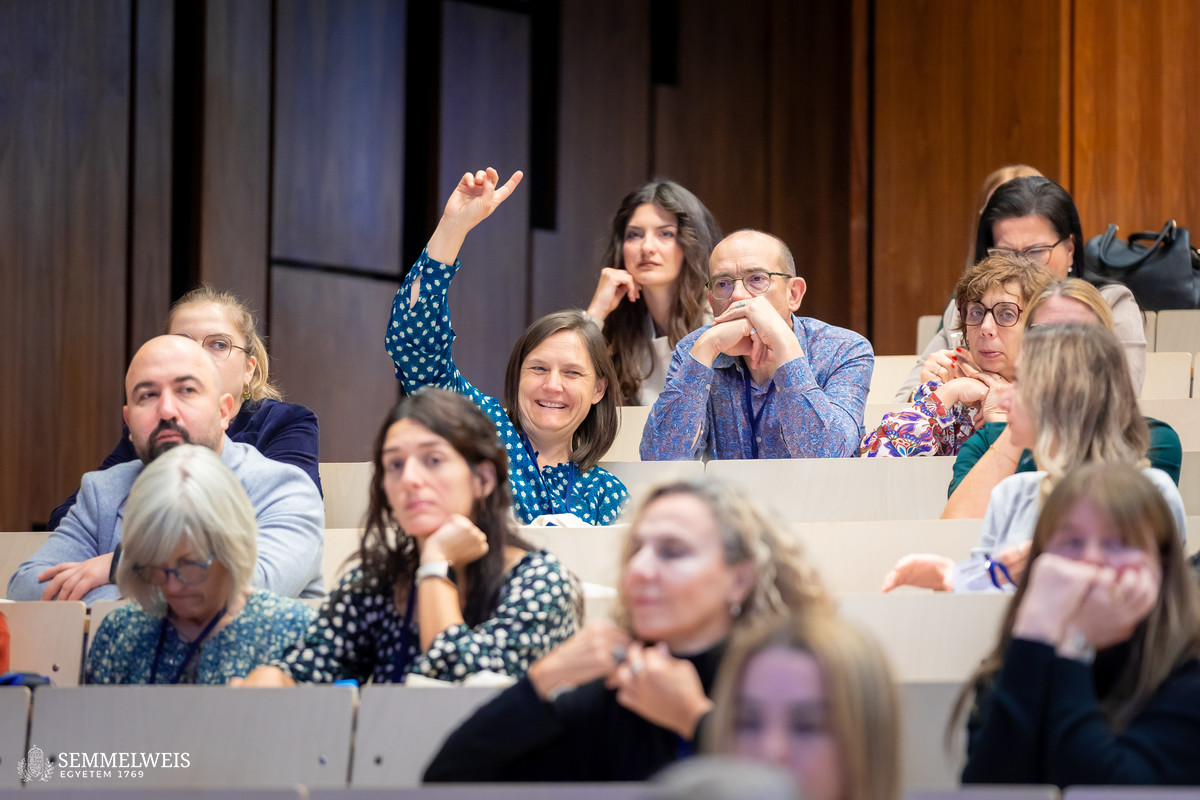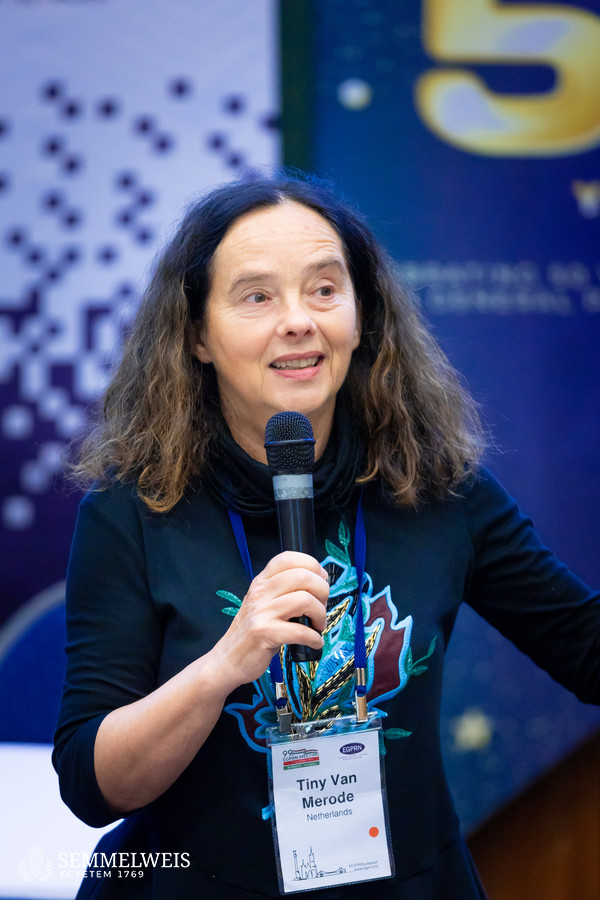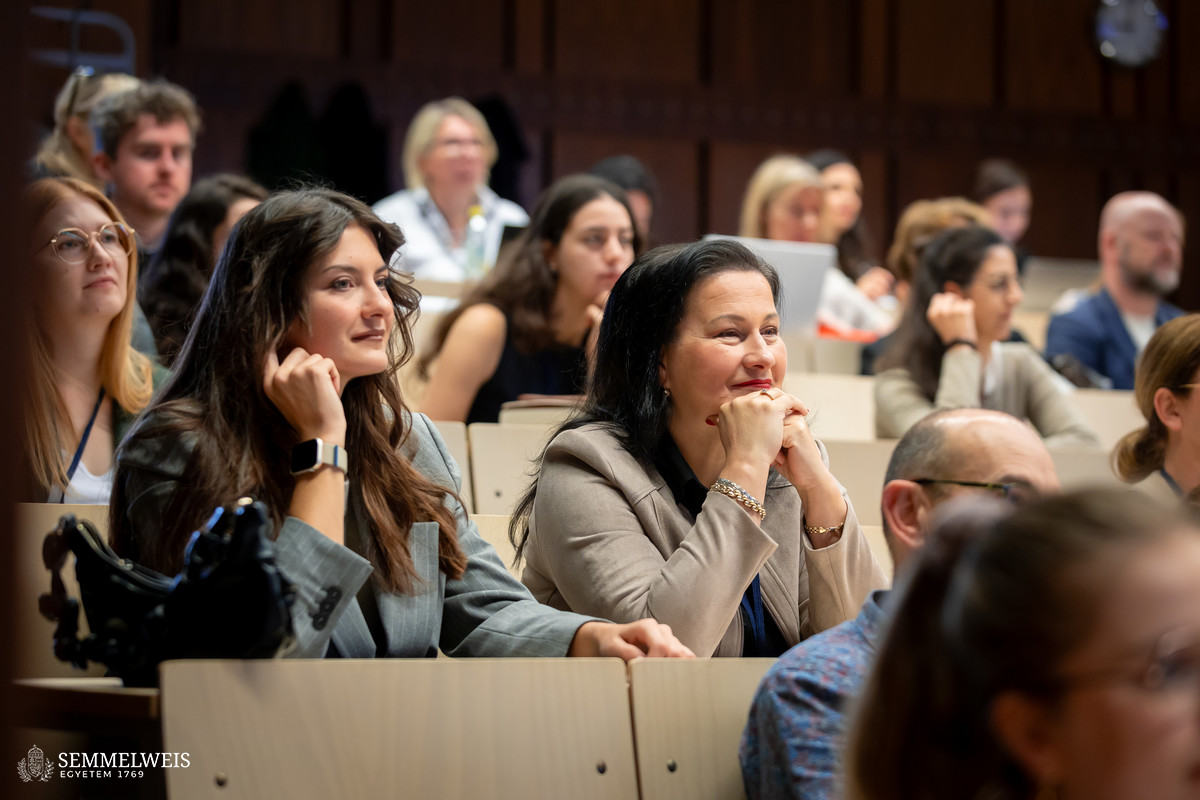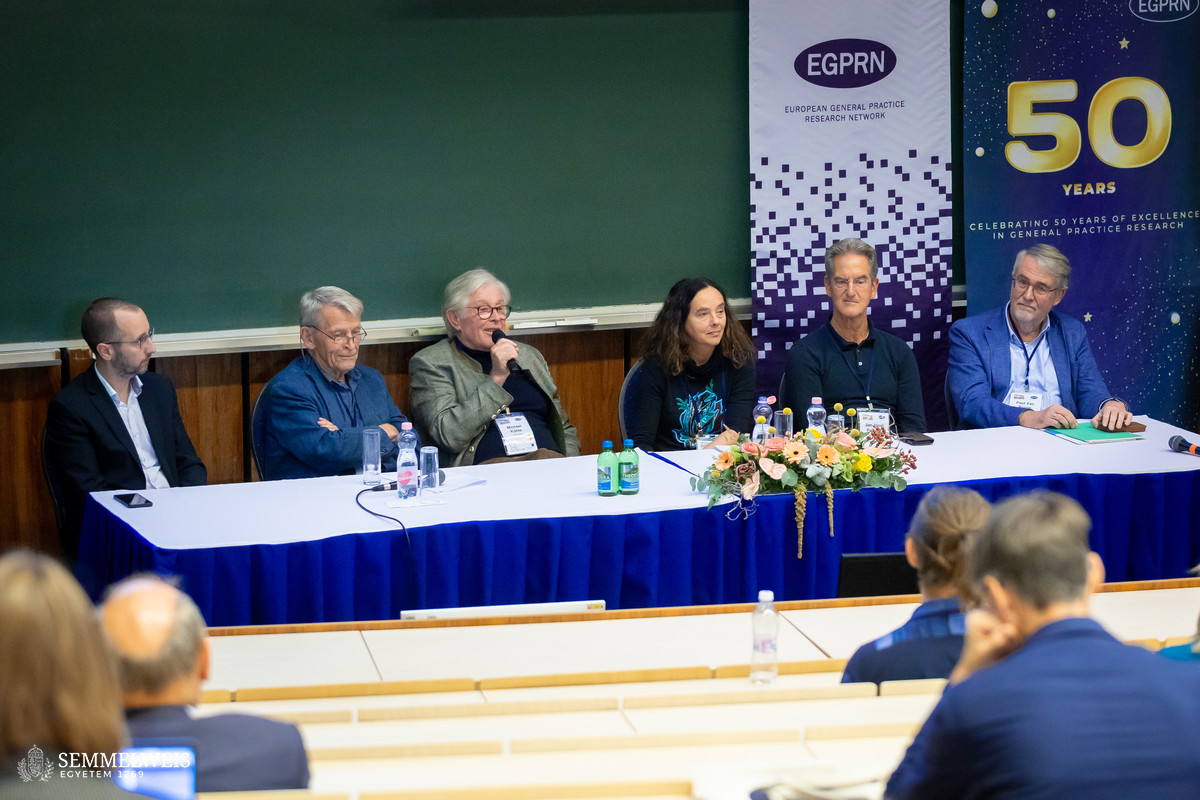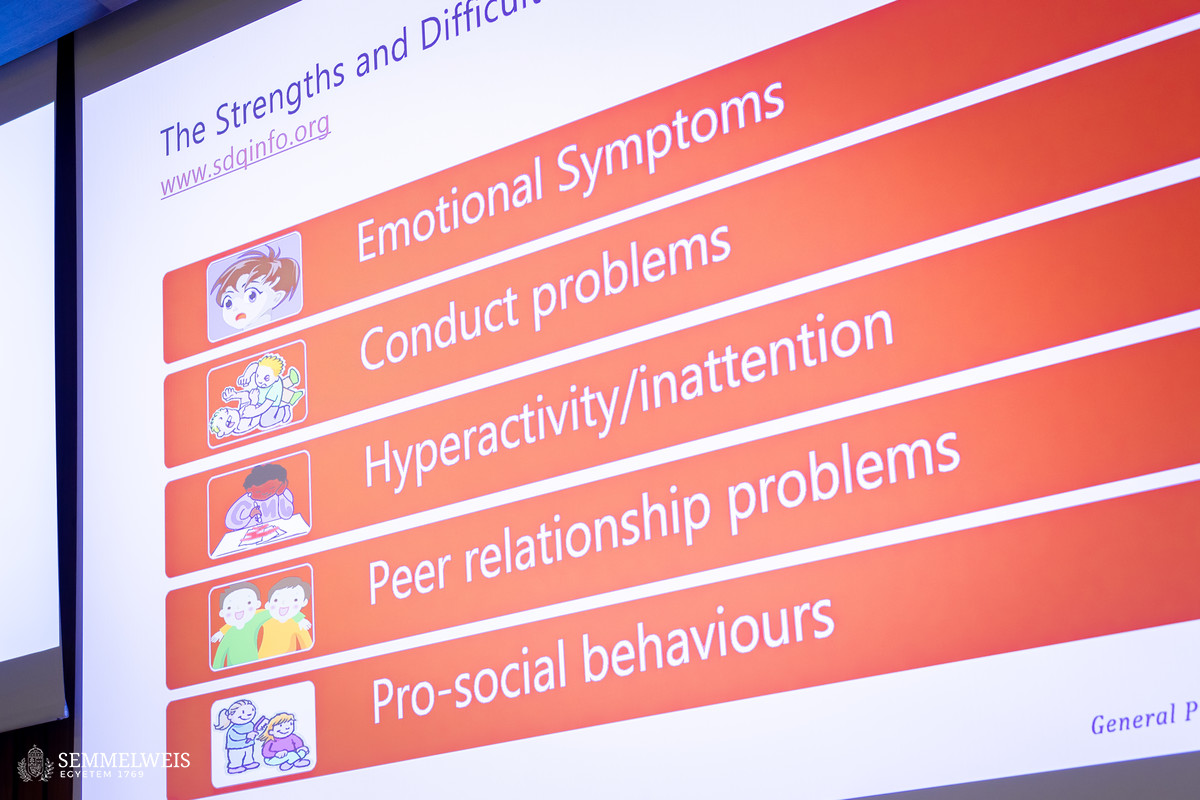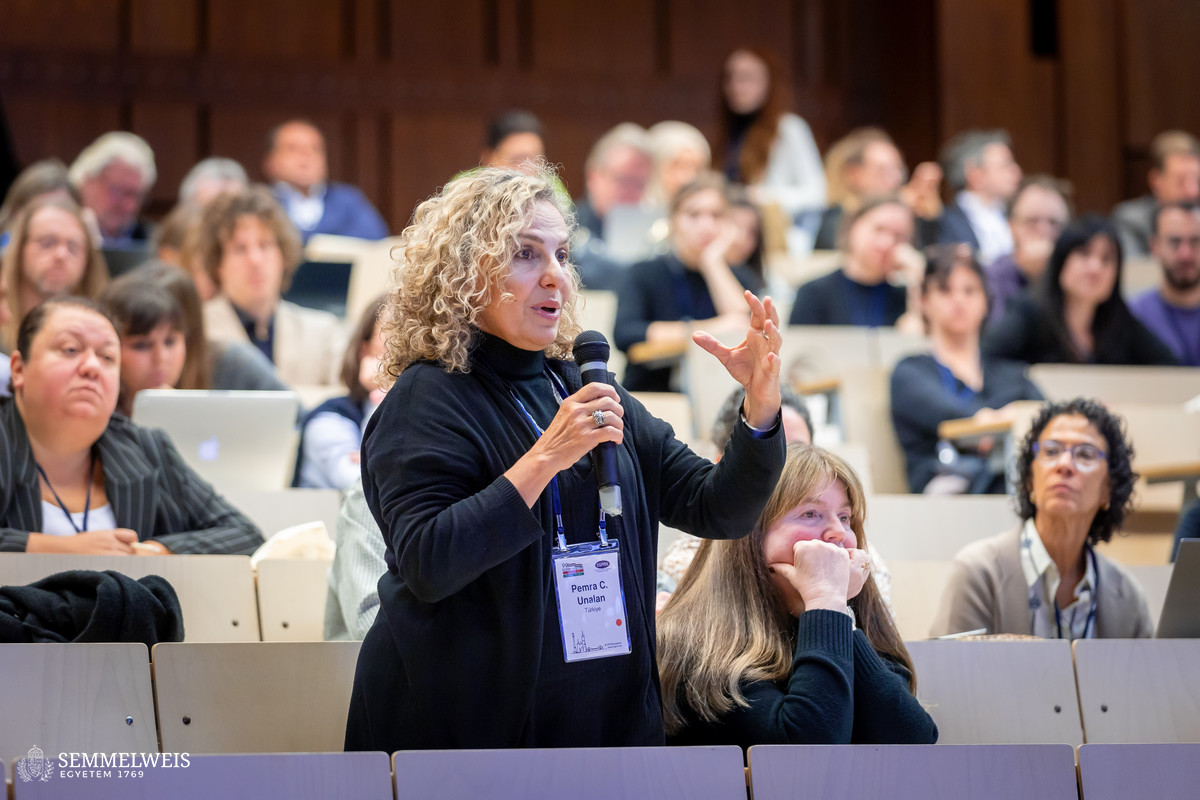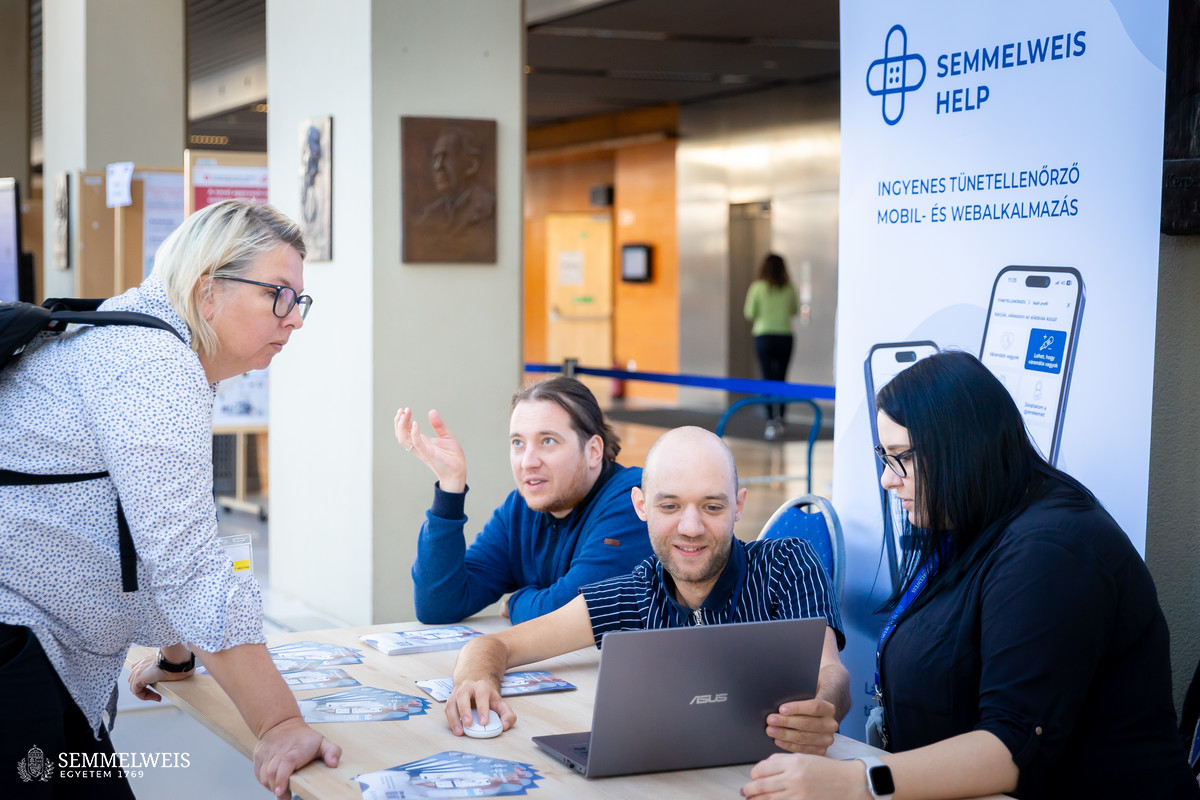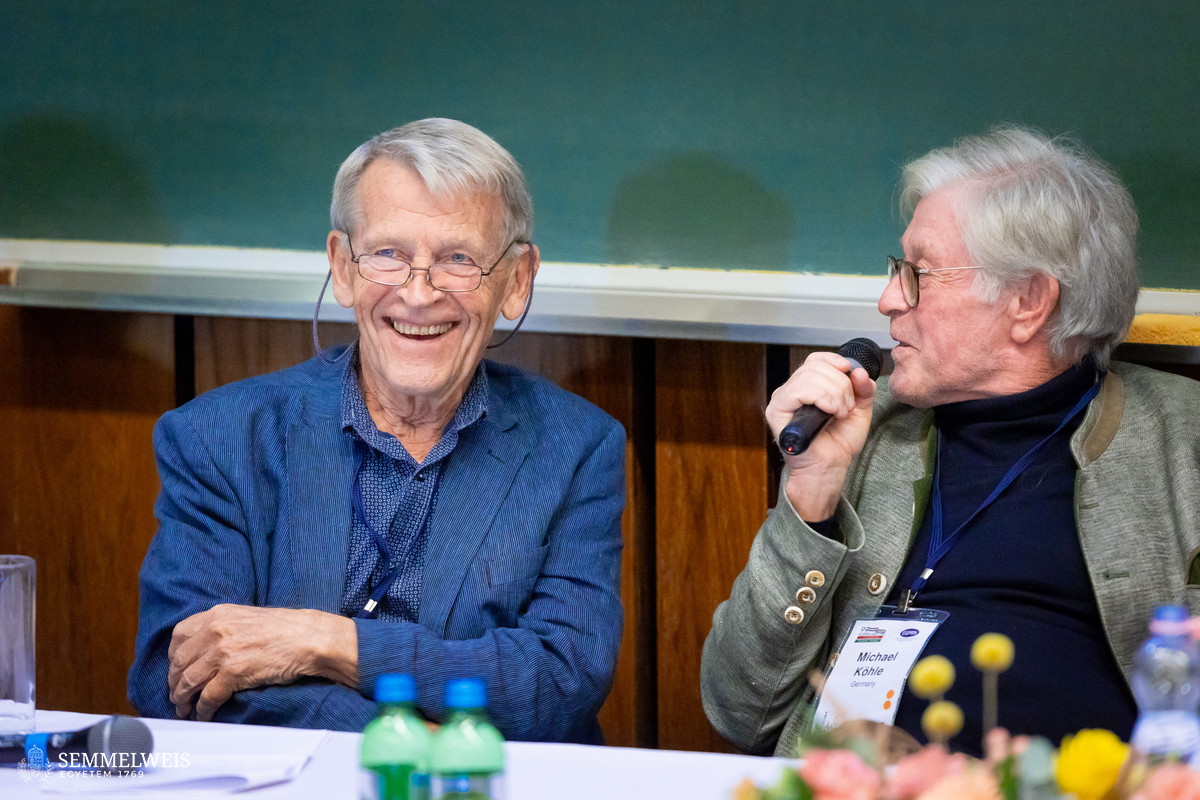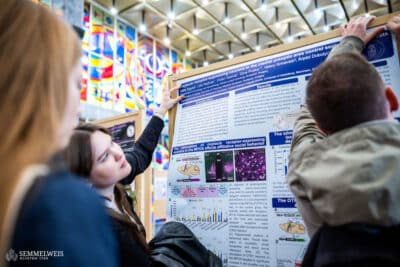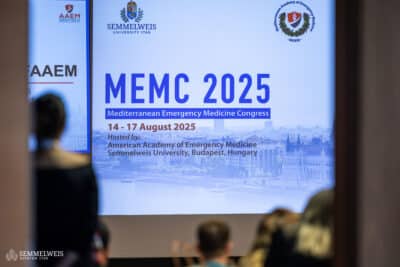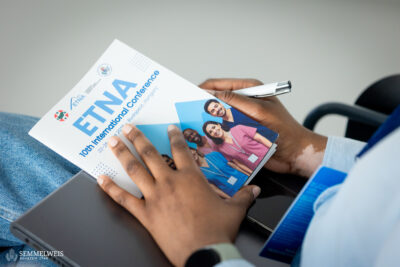This autumn, the European General Practice Research Network (EGPRN) has been celebrating its 50th anniversary, marked by the 99th EGPRN meeting from October 17-20, 2024 at the Basic Medical Science Center. The network, which holds biannual meetings, aims to present the latest research in primary care and promote collaboration between European researchers.
More than 220 general practitioner–researchers from 36 countries attended the four-day event. “We are particularly pleased that around 60 of them are early-career general practitioner–researchers. After all, one of the main objectives of EGPRN is to raise awareness of the importance of research among young professionals, given that studies in primary care can be easily implemented in the clinical setting: Therefore, the results presented at the conference can be translated into practice within a few months,” Dr. Péter Torzsa, Head of Department, told our website, who hosted the event alongside Assistant Professor Dr. Krisztián Vörös.
In addition to learning about scientific results, the event also provided an opportunity to deepen the research methodology skills leading to them. The pre-conference workshops, led by international experts such as Jako Burgers, editor-in-chief of the Q1 European Journal of General Practice, were intended to assist with preparing research, selecting statistical methods, publishing results, reading a paper critically, and interpreting research results from a clinical perspective.
The 99th meeting focused on promoting mental health and prevention, and this was the theme of the Bálint Group session as well. The method was developed by the Hungarian-born British psychiatrist Michael Balint (Bálint Mihály) in the 1950s, primarily to support the doctor–patient or professional helper–client relationship, and has become a compulsory component of medical training in Germany, the United Kingdom, the United States, and Hungary. The workshop, led by Dr. Ádám Becze, English Program Tutor and expert of the Department of Family Medicine, and Dr. Katalin Dobó, President of the Hungarian Michael Balint Society for Psychosomatics, accredited lecturer of the Department, introduced the participants to the basics of the method, which promotes conflict resolution, mental health, and preventing burnout.
At the conference opening on October 18, EGPRN President Tiny van Merode stressed that the network had amassed half a century of research results throughout its rich history. She also welcomed former presidents of the network, who were also invited to the anniversary congress and recalled their experiences. The event was also attended by Dr. Shlomo Vinker and Dr. Thomas Frese, current and future presidents of the World Organization of Family Doctors (WONCA) Europe.
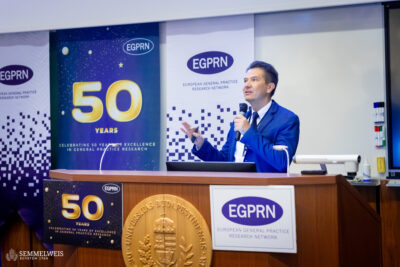 In his national keynote, Dr. Péter Torzsa gave an overview of the state of primary care in Hungary, and the growing statistics of the vacant practices in Hungary, which is also a phenomenon in Europe. He outlined the training modules and open days at Semmelweis University, which raise awareness of the importance of family medicine for undergraduate medical students. Among these, he highlighted the mentoring program, introduced this autumn as part of the curriculum reform. He briefly introduced the research groups within the department, which, in addition to the latest developments in family medicine, are studying diabetes, mood disorders, vascular prevention, and integrative medicine. Dr. Péter Torzsa presented the Semmelweis Study, a prospective occupational cohort study, and the Semmelweis HELP symptom checker app, which was upgraded this October to include adult general practice, obstetrics and gynecology, and ophthalmology in addition to pediatric diseases. As he said, telemedicine and mobile screening units are also gaining importance due to long-term vacancies; the screening bus operated by the Hungarian Charity Service of the Order of Malta was also on display at the conference venue.
In his national keynote, Dr. Péter Torzsa gave an overview of the state of primary care in Hungary, and the growing statistics of the vacant practices in Hungary, which is also a phenomenon in Europe. He outlined the training modules and open days at Semmelweis University, which raise awareness of the importance of family medicine for undergraduate medical students. Among these, he highlighted the mentoring program, introduced this autumn as part of the curriculum reform. He briefly introduced the research groups within the department, which, in addition to the latest developments in family medicine, are studying diabetes, mood disorders, vascular prevention, and integrative medicine. Dr. Péter Torzsa presented the Semmelweis Study, a prospective occupational cohort study, and the Semmelweis HELP symptom checker app, which was upgraded this October to include adult general practice, obstetrics and gynecology, and ophthalmology in addition to pediatric diseases. As he said, telemedicine and mobile screening units are also gaining importance due to long-term vacancies; the screening bus operated by the Hungarian Charity Service of the Order of Malta was also on display at the conference venue.
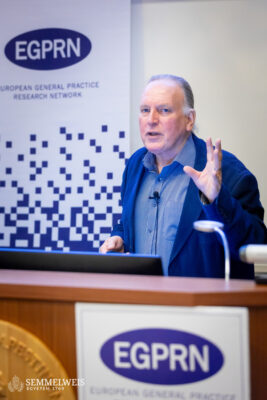 Dr. Philip Wilson, Professor at the Department of Family Medicine, University of Copenhagen, and Professor Emeritus at the University of Aberdeen, gave a lecture on promoting mental health from birth. Based on epidemiological studies, he pointed out that cumulative childhood trauma, socio-economic factors, delayed language development, as well as early conduct and attention disorders predicted a higher risk of certain diseases or even mortality in addition to addictions in adulthood. However, mental health is already affected by fetal brain development, as the total number of brain nerve cells peaks at 86 billion by the 6th month of gestation. As a result, in addition to infections that affect the fetus, cortisol penetrating the placenta also affects the health of the unborn child, so stress on the fetus during pregnancy can be responsible for up to 10-15 percent of mental health concerns in late childhood. Pediatricians and family doctors can contribute to supporting children’s mental health through maintaining direct contact, identifying risk factors, counseling the parents, and involving helping professionals, highlighted Dr. Philip Wilson.
Dr. Philip Wilson, Professor at the Department of Family Medicine, University of Copenhagen, and Professor Emeritus at the University of Aberdeen, gave a lecture on promoting mental health from birth. Based on epidemiological studies, he pointed out that cumulative childhood trauma, socio-economic factors, delayed language development, as well as early conduct and attention disorders predicted a higher risk of certain diseases or even mortality in addition to addictions in adulthood. However, mental health is already affected by fetal brain development, as the total number of brain nerve cells peaks at 86 billion by the 6th month of gestation. As a result, in addition to infections that affect the fetus, cortisol penetrating the placenta also affects the health of the unborn child, so stress on the fetus during pregnancy can be responsible for up to 10-15 percent of mental health concerns in late childhood. Pediatricians and family doctors can contribute to supporting children’s mental health through maintaining direct contact, identifying risk factors, counseling the parents, and involving helping professionals, highlighted Dr. Philip Wilson.
Other plenary presentations, parallel sessions, and discussions, all focusing on mental well-being, covered topics such as the impact of the COVID-19 pandemic on mental health, innovative support strategies, resilience development, the stress-relieving effects of food supplements, and addressing mental health inequalities. Participants were also given presentations on the management of other chronic diseases in general practice and the role of technological innovations in primary care.
In Saturday’s national plenary lecture, Dr. György Purebl, Director of the Institute of Behavioral Sciences, spoke about the importance of psychological interventions in primary care. He discussed the treatment of depression and other mental disorders, as well as low-intensity psychological methods that can be used in primary care, which are quick and easy to learn and apply.
GP practice visits alongside the event also facilitated the exchange of experience. At the social event, two opera singer family medicine residents from the Department of Family Medicine, Dr. András Hábetler and Dr. István Kovács, greeted the jubilee organization with opera arias, engaging the audience as well.
Judit Szabados-Dőtsch
Photos by Boglárka Zellei – Semmelweis University
